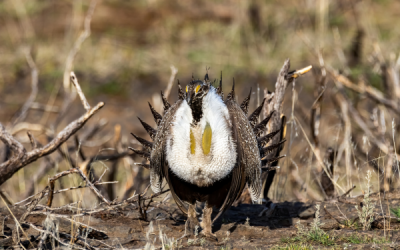A farm can’t operate without its farmer. That’s why new initiatives are underway to help keep the farmer and rancher on the farm and ranch.
Fostering support: At the American Farm Bureau Federation’s (AFBF) 105th annual convention in Salt Lake City, President Zippy Duvall announced a peer-to-peer platform where members everywhere can anonymously share their struggles. It’s part of an ongoing effort to lessen mental health stigma in the agriculture industry and provide resources to help.
Inari Agriculture is working to seed the future.
Who: Inari, a startup based in Massachusetts and known as the SEEDesign™ company. The company is using cutting-edge gene-editing technology to develop seeds that can do more with less. In other words: they want to make seeds for corn, wheat, soybeans, etc that use less water, land, and fertilizer. (The goal is to increase yield in corn, wheat, and soybeans by as much as 20%.)
What: The startup’s latest fundraising round wrangled $103M, bringing its total equity raised to over $575M. Big-name investors include Hanwha Impact, Canada Pension Plan Investment Board, the State of Michigan Retirement System, Rivas Capital, NGS Super, Flagship Pioneering, RMC Private Market Funds, and more.
Why: Inari has spent the last year establishing and proving that its SEEDesign platform can multitask, editing multiple native genes in a plant at the same time through AI-powered predictive design. The ultimate goal is to produce more food using fewer resources and synthetic chemicals, and to strive for a more sustainable, nature-positive food system. This money will help the company enter its commercialization phase—aka, farmers and other seed customers will soon be able to order these seeds.
Soundbite: “These investments represent further external validation of Inari’s innovative technology and confidence in our creation of significant economic and environmental value by delivering our breakthrough, nature-positive products to seed customers,” said Inari CEO Ponsi Trivisvavet.
America Has the Meats
Americans have the meats. Eighty percent of Americans call themselves meat eaters, while...
Grappling Grouse: Conservation for the Birds
Puff up your chest, greater sage-grouse: you’re getting your limelight! Strut your stuff:...
Snake: It’s What’s For Dinner
Feeling sustainable? You might consider a main course that’s a little… different. If it...




